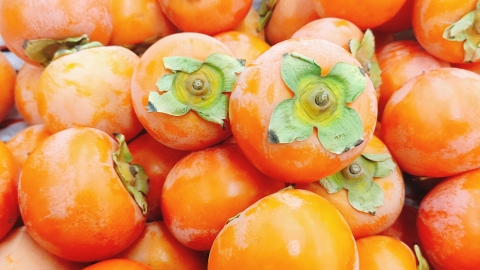Can patients with gallstones eat persimmons?
Generally, patients with gallstones can eat persimmons, but it is not recommended to consume them in large amounts. The detailed explanation is as follows:

For patients with stable gallstone conditions, consuming a moderate amount of ripe persimmons is acceptable. Persimmons contain nutrients such as vitamin C and dietary fiber. Vitamin C participates in metabolic processes, while dietary fiber helps promote intestinal motility and aids digestion. Ripe persimmons are low in fat and do not excessively stimulate gallbladder contraction, so they generally do not adversely affect patients with stable conditions. They can also provide nutritional benefits and satisfy the desire for fruit.
When eating persimmons, be sure to choose fully ripe fruits and avoid unripe or astringent ones to prevent tannic acid from irritating the gastrointestinal tract. Consumption should be limited—usually one persimmon is sufficient—to avoid excessive sugar intake. It is not advisable to eat persimmons on an empty stomach, as this may increase the burden on the digestive system. If discomfort such as abdominal pain or bloating occurs after eating, stop consumption immediately and monitor symptoms; consult a doctor if necessary. In daily life, maintaining a light and regular diet remains important.





